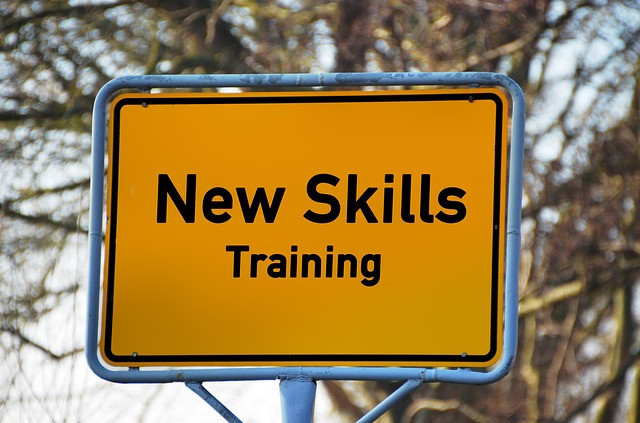Digital marketing isn’t just for big brands, it’s a powerful way to earn real income online. In this guide, we’ll explore 7 valuable ways to make money with digital marketing, whether you’re a beginner or looking to scale. From affiliate marketing to selling digital products, each method leverages proven strategies to help you build sustainable online income. If you’re ready to turn your skills into profit, this is where you start.
For beginners, digital marketing opens multiple paths to earn money online without needing a physical product or large startup budget. With the right skills and tools, anyone can learn how to make money with digital marketing—even while working full-time or managing other responsibilities.
In this article, we’ll break down 7 valuable and proven ways to turn digital marketing into a steady income stream. Whether you’re new to the space or looking to grow, these methods are practical and designed for action.
What Is Digital Marketing?
Digital marketing encompasses all marketing efforts that utilize electronic devices and the internet. It leverages various online channels, digital technologies, and platforms to connect with current and prospective customers. Unlike traditional marketing methods, digital marketing enables businesses to analyze campaigns in real-time and adjust strategies for optimal performance. Key components include search engine optimization (SEO), social media marketing, email marketing, content marketing, and pay-per-click (PPC) advertising. This multifaceted approach aims to increase brand awareness, drive website traffic, generate leads, and ultimately, boost sales and revenue in today’s digital landscape.
Related Content
- How To Get Into Freelance Copywriting And Make Extra Income
- Step Into Profit: How To Start A Lucrative Online Bookkeeping Business
- How To Make Extra Money With Transcription Services
- How Entrepreneurs Can Be Successful In The App Development Industry
Current Digital Marketing Industry Trend
The current digital marketing industry is dynamic, constantly evolving with technological advancements and changing consumer behaviors. Here are some notable trends shaping the digital marketing landscape in recent times:
AI and Machine Learning
Artificial Intelligence (AI) and machine learning are revolutionizing digital marketing by enabling personalized customer experiences, predictive analytics, and automated processes. AI-powered tools help marketers analyze vast amounts of data to make informed decisions and optimize campaigns in real-time.
Voice Search Optimization
With the rise of voice assistants like Siri, Alexa, and Google Assistant, optimizing content for voice search has become crucial. Marketers are adapting their SEO strategies to include long-tail keywords and natural language queries that people use when speaking to voice-enabled devices.
Video Marketing Dominance
Video content continues to dominate digital platforms. Short-form videos on platforms like TikTok and Instagram Reels, as well as longer formats on YouTube, are driving engagement and conversions. Live streaming and interactive video content also play a significant role in engaging audiences in real-time.
Ephemeral Content
Ephemeral content, such as Stories on Instagram, Facebook, and Snapchat, is gaining popularity due to its temporary nature and authenticity. Brands use Stories to share behind-the-scenes content, product updates, and limited-time offers, fostering a sense of urgency and connection with audiences.
Privacy and Data Protection
With increased concerns over data privacy, regulations like GDPR and CCPA have prompted stricter guidelines on how businesses collect, store, and use customer data. Marketers are focusing on transparency, consent management, and data security to build trust with consumers.
Interactive Content
Interactive content, such as quizzes, polls, and interactive infographics, enhances user engagement and encourages participation. It provides personalized experiences, captures audience attention, and collects valuable data insights for marketers to refine their strategies.
Social Commerce
Social media platforms are increasingly integrating shopping features, allowing users to discover and purchase products without leaving the app. Influencer marketing plays a pivotal role in driving social commerce by leveraging influencers’ influence to promote products to their followers.
Content Personalization
Personalized content tailored to individual preferences and behaviors is essential for enhancing customer experiences. Marketers use data-driven insights to deliver relevant content across various channels, increasing engagement and conversions.
Augmented Reality (AR) and Virtual Reality (VR)
AR and VR technologies are transforming digital marketing by offering immersive brand experiences. Brands use AR for virtual try-ons, interactive product demos, and location-based AR experiences to engage and convert consumers in unique ways.
Sustainability and Purpose-Driven Marketing
Consumers are increasingly drawn to brands that demonstrate corporate social responsibility (CSR) and sustainability efforts. Purpose-driven marketing campaigns that align with social and environmental causes resonate with socially conscious consumers and build brand loyalty.
These trends highlight the importance of adopting innovative strategies, leveraging technology, and prioritizing consumer preferences to stay competitive in the ever-evolving digital marketing landscape.

7 Valuable Ways To Make Money With Digital Marketing
1. Affiliate Marketing
Affiliate marketing is one of the most popular ways to generate affiliate marketing income with minimal upfront investment. It works by promoting someone else’s product or service through a unique tracking link. When someone buys through your link, you earn a commission.
There are many digital marketing affiliate programs available, including well-known platforms like Amazon Associates, ShareASale, CJ Affiliate, and PartnerStack. These programs cover a wide range of niches and products, giving you plenty of options to promote what fits your audience.
To succeed, place affiliate links naturally within valuable content like blog posts, product reviews, or tutorial videos. Focus on solving problems and recommending products you trust. The more targeted your traffic, the higher your conversion rate.
2. Selling Digital Products
If you want to sell digital products online, this is a great way to build passive income with digital marketing. Digital products include things like eBooks, printable templates, online courses, or even stock photos—anything downloadable that provides value.
To get started, tools like Gumroad, Teachable, Canva, or Podia make it easy to create and sell digital products. You don’t need to be a designer or tech expert. Start with a simple lead magnet or low-cost product to test your market.
Use content marketing, email lists, and social media to promote your digital products. Offer them as solutions to specific problems, and use testimonials or case studies to build trust.
3. Freelance Digital Marketing Services
Offering freelance digital marketing services is a direct way to earn income using your skills. Common services include SEO, social media management, email marketing, Google Ads, and content writing.
You can find clients through platforms like Upwork, Fiverr, PeoplePerHour, and LinkedIn. Start with a clear service offering and build a simple portfolio—even if it includes mock projects.
As a freelance digital marketer, focus on becoming a specialist in one area, then expand. Build credibility by sharing insights on LinkedIn or creating your own website. Over time, you can raise your rates and attract long-term digital marketing gigs.
4. Starting a Blog or Niche Website
One of the most sustainable ways of blogging for money is by launching a content-rich niche blog. A blog focused on a specific topic (like personal finance, fitness, or parenting) attracts targeted readers and opens multiple monetization options.
You can monetize a niche blog through display ads (like Google AdSense or Ezoic), affiliate links, and sponsored content. As your traffic grows, brands may approach you for partnerships and promotions.
To succeed long-term, build your blog around solid SEO and content strategy. Focus on answering questions your target audience is searching for. Optimize posts with keywords, use proper headings, and interlink related articles. Over time, consistent content can generate passive income month after month.
5. Running Paid Ads for Clients
If you understand Facebook ads or Google PPC campaigns, you can offer these services to businesses as a media buyer. Many small businesses want traffic but don’t know how to run ads effectively—this is where you come in.
Start by managing Facebook ads for clients, local businesses, or even e-commerce stores. As you build experience, you can branch into Google Ads, Instagram Ads, and YouTube advertising. This model generates PPC advertising income through retainers or performance-based contracts. Deliver real results (leads or sales), and use those outcomes to scale your services and attract higher-paying clients.
6. Building and Monetizing an Email List
Email is one of the oldest digital channels, yet it remains one of the most profitable. A solid email marketing strategy allows you to build direct relationships with your audience, promote offers, and drive repeat traffic. Start by creating a lead magnet—a free eBook, checklist, or mini-course—and collect emails through landing pages or blog opt-ins. Tools like ConvertKit, MailerLite, or Mailchimp make setup easy.
Once you have subscribers, you can make money with your email list by promoting your own digital products, affiliate links, or even sponsored newsletter placements. The bigger and more engaged your list, the more earning potential you unlock.
7. Search Engine Optimization (SEO): Enhancing Online Visibility
SEO is the practice of optimizing your website to rank higher in search engine results pages (SERPs). It involves strategic use of keywords, optimizing meta tags, and improving site speed and mobile responsiveness to enhance user experience.
Basics of SEO: Start by conducting keyword research to identify phrases your target audience is searching for. Integrate these keywords naturally into your content to improve visibility and attract organic traffic.
Optimization Techniques: Focus on both on-page and off-page SEO. On-page strategies include optimizing title tags, headers, and meta descriptions. Off-page techniques involve building quality backlinks from reputable sites to boost domain authority.
ROI: Effective SEO efforts can lead to increased website traffic and conversions, ultimately driving revenue growth for your business or personal brand.
How To Learn Digital Marketing
Learning digital marketing involves mastering a combination of skills, strategies, and tools to effectively promote businesses online. Here’s a comprehensive guide on how to get started and excel in digital marketing. Learn more here.
-
Start with the basics: Learn core areas like SEO, social media, content, email marketing, and PPC.
-
Take online courses: Enroll in free/paid courses from Google Digital Garage, HubSpot, Coursera, or LinkedIn Learning.
-
Read books and blogs: Study resources like Digital Marketing for Dummies and follow blogs by Neil Patel, Moz, and HubSpot.
-
Practice through projects: Build a website or blog, manage social accounts, and run sample ad campaigns.
-
Gain real experience: Apply for internships or offer freelance services on platforms like Fiverr and Upwork.
-
Stay current: Attend webinars, follow industry leaders, and keep up with trends and tools.
-
Master analytics: Learn Google Analytics, SEMrush, or Ahrefs to track performance and improve campaigns.
-
Build a portfolio: Showcase case studies, project results, and your personal brand online.
-
Network & find mentors: Join LinkedIn groups and attend events to grow professionally.
-
Stay persistent: Keep testing, learning, and adapting as the industry evolves.
Final Thoughts
Now that you’ve explored 7 valuable ways to make money with digital marketing, it’s clear there are multiple paths to earn online—whether through affiliate marketing, selling digital products, freelancing, blogging, paid ads, email marketing, or building a niche site.
Each method has the potential to grow from a simple side hustle into a scalable online business. The key is to pick one strategy that aligns with your skills and interests—and start today. Focus, stay consistent, and build as you go.
Ready to take the first step?







